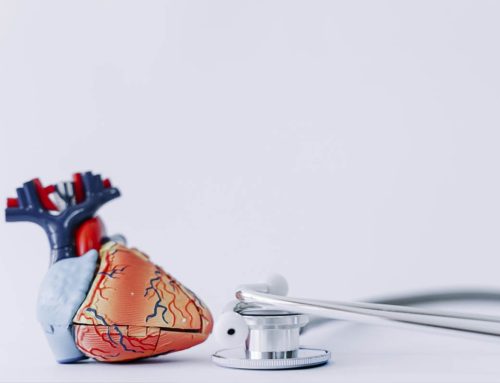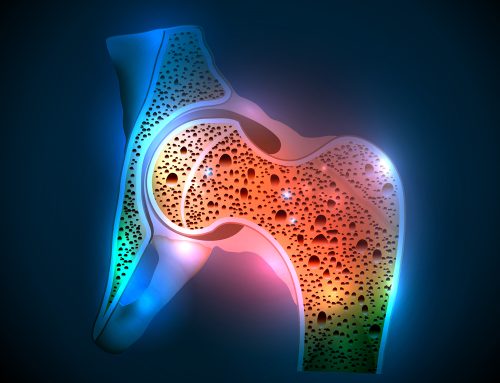Many of the ladies that come to see me mention the impact of their menopause on their work, keep reading to find out what can be done to help!
Menopause is a normal life event for women, it is not an illness or medical condition. Menopause is when periods stop and the average age of menopause in the UK is 51. Before periods stop there is often several years of change in the pattern of periods and menopausal symptoms can start up during this time – this is known as the perimenopause. As over the past century women are living longer, women can spend one-third of their lives being postmenopausal!
Women make up almost half of the UK workforce. As retirement age increases, women are working longer and so a huge proportion of the UK labour force will experience menopause transition during their working lives. The March 2019 Office of National Statistics estimate is that there are around 4.38 million women aged 50-64 years old in employment in the UK – so there are a huge number of women who are having their menopause whilst they are working!
Menopausal symptoms are not limited to hot flushes! Other symptoms can include mood changes, memory loss, vaginal dryness and soreness, reduced libido, sleep disturbances, joint pains and muscle stiffness.
Women vary in how severe their symptoms are but around 75% of menopausal women experience some symptoms, with one third of these describing them as severe. In some women they last for a few years but in others they can continue for decades.
Studies have shown that about half of menopausal women find it difficult to cope with work during the menopausal transition. The British Occupational Research Foundation report 2010 (https://www.bohrf.org.uk/downloads/Womens_Experience_of_Working_through_the_Menopause-Dec_2010.pdf) found that poor concentration, tiredness and poor memory are the most troublesome symptoms at work and 42% thought their perceived job performance had been negatively impacted by menopause. Menopausal symptoms should therefore be viewed as an occupational health issue.
In addition to the symptoms above, many of my patients describe feeling a loss of confidence in their ability to do their work and express embarrassment at having hot flushes in front of colleagues. Some have said they have contemplated reducing their working hours or even stopping work altogether as a way of coping.
So what can be done to help?!
Firstly, it is important to recognise that you are not alone and there are countless other women who are struggling in the same way.
We need to foster a culture in society where menopause can be openly discussed as a normal natural part of aging and no longer thought of a taboo subject. Menopause is being talked about more and more in the media which may help and the more we start conversations with other people about menopause, the more normal it will become to discuss it.
Approach your line manager about the symptoms you are experiencing and how it is affecting you at work. You could consider talking to your occupational health department to see if reasonable adjustments can be made to your working environment. Simple things such as the provision of a desk fans or relocating your desk to be near an open window or away from a radiator can help. Flexible working arrangements could be discussed, e.g. the ability to work from home or to start later, if sleep is being particularly disturbed. Access to cold drinking water and toilet facilities are important. If a uniform is worn to work, the use of comfortable fabric and the flexibility to remove layers could be discussed. It might be helpful to print out a copy of the guidance from the Faculty of Occupational Medicine about menopause at work and take it with you when you speak to your occupational health department: http://www.fom.ac.uk/wp-content/uploads/Guidance-on-menopause-and-the-workplace-v6.pdf
Other practical things you can do is trying to dress in layers which are easy to remove, avoiding triggers for hot flushes which can sometimes be worsened by caffeine, alcohol and spicy foods. Exercise, not smoking, a healthy diet and a normal weight will also improve your overall health and wellbeing. Writing reminders for yourself if you feel your memory is being affected e.g. carrying a notebook or using technology. Cognitive behavioural therapy has been shown to be helpful in reducing the impact of symptoms and help with mood changes.
Book an appointment to see your doctor to discuss your symptoms and ask for appropriate treatment. There is no need to wait until your symptoms are severe and you don’t have to wait until your periods have stopped, you can still have treatment if you in the perimenopause.
Hormone Replacement Therapy (HRT) is the most effective treatment for menopausal symptoms and there are very few women for whom this would not be suitable, particularly if started below the age of 60 and within 10 years of the menopause, given transdermally (through the skin) and with body identical hormones (biochemically the same as your natural hormones). If HRT is unsuitable for you (e.g. you have breast cancer) there are other available options for treatment such as antidepressants or gabapentin.







Leave A Comment